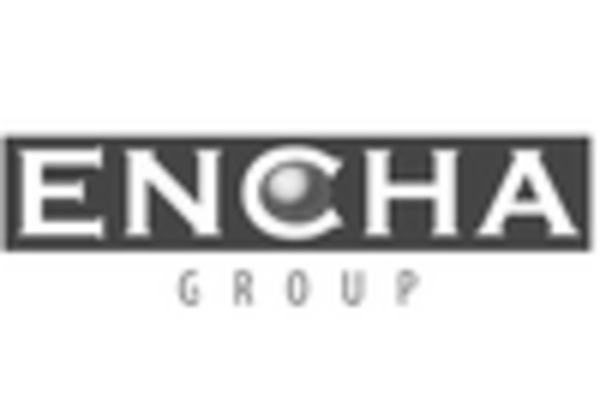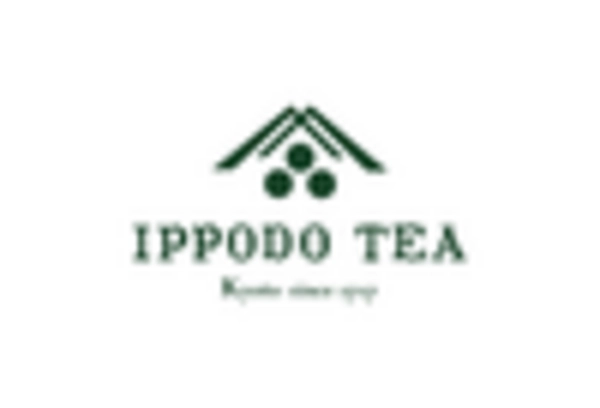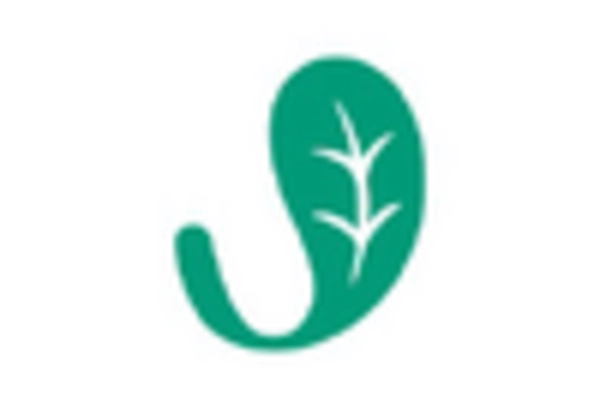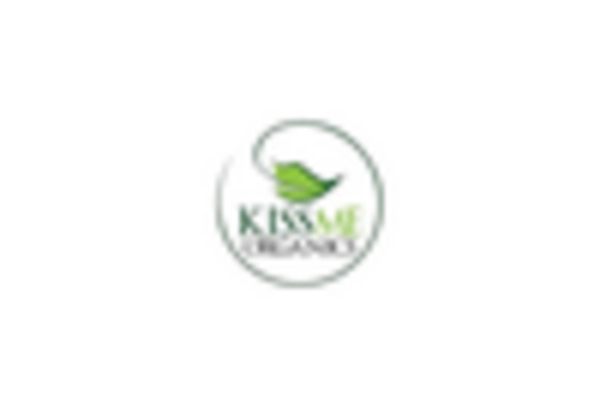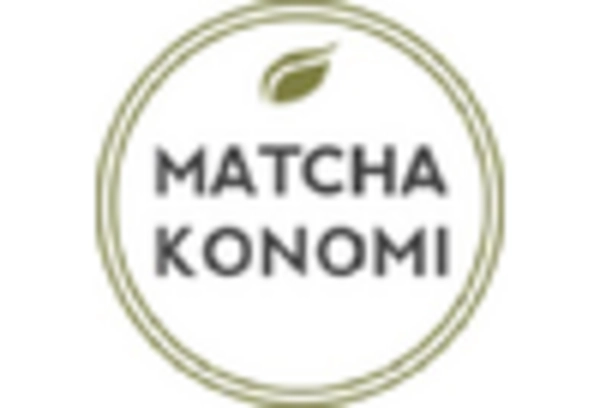Rising Health Consciousness
The matcha tea market in Canada is experiencing a notable surge due to the increasing health consciousness among consumers. As individuals become more aware of the benefits associated with matcha, such as its high antioxidant content and potential metabolism-boosting properties, demand is likely to rise. Recent surveys indicate that approximately 60% of Canadians prioritize health and wellness in their dietary choices, which directly influences their beverage preferences. This trend suggests that the matcha tea market could see a compound annual growth rate (CAGR) of around 8% over the next five years, as more consumers opt for healthier alternatives to traditional caffeinated beverages. The matcha tea market is thus positioned to capitalize on this growing segment of health-focused consumers, potentially leading to increased product innovation and marketing strategies aimed at highlighting the health benefits of matcha.
Culinary Innovation and Trends
The matcha tea market in Canada is benefiting from culinary innovation, as chefs and food enthusiasts increasingly incorporate matcha into various recipes. This trend is not limited to beverages; matcha is being used in desserts, smoothies, and even savory dishes, appealing to a broader audience. The versatility of matcha allows it to be marketed as an ingredient that enhances both flavor and nutritional value. According to industry reports, the food and beverage sector is projected to grow by 5% annually, with matcha-infused products gaining traction. This culinary trend indicates that the matcha tea market may experience a diversification of product offerings, catering to consumers seeking unique and healthful culinary experiences. As restaurants and cafes continue to innovate with matcha, the market is likely to expand, attracting new customers and fostering brand loyalty.
Cultural Influence and Popularity
The matcha tea market in Canada is significantly influenced by cultural trends, particularly the growing popularity of Japanese culture and cuisine. As more Canadians become exposed to traditional Japanese tea ceremonies and culinary practices, the appreciation for matcha is likely to increase. This cultural influence is reflected in the rising number of specialty tea shops and cafes that offer matcha-based beverages and products. Market analysis indicates that the demand for matcha has grown by approximately 25% in urban areas, where cultural diversity is more pronounced. The matcha tea market stands to benefit from this cultural shift, as it aligns with consumers' desires for authentic and experiential dining options. This trend may lead to further exploration of matcha's culinary applications, enhancing its appeal across different demographics.
E-commerce Growth and Accessibility
The matcha tea market in Canada is witnessing a significant shift towards e-commerce, driven by changing consumer shopping habits. With the rise of online shopping platforms, consumers now have easier access to a variety of matcha products, from traditional powders to ready-to-drink options. Recent data suggests that online sales in the beverage sector have increased by 30% over the past year, indicating a strong preference for convenience among consumers. This trend is particularly relevant for the matcha tea market, as it allows brands to reach a wider audience without the limitations of physical retail spaces. The growth of e-commerce not only enhances accessibility but also encourages brands to invest in digital marketing strategies, potentially leading to increased sales and brand visibility in a competitive market.
Sustainability and Ethical Consumerism
The matcha tea market in Canada is increasingly shaped by consumer preferences for sustainability and ethical sourcing. As awareness of environmental issues grows, consumers are more inclined to support brands that prioritize sustainable practices. This trend is particularly relevant for the matcha tea market, as many consumers seek products that are not only healthy but also environmentally friendly. Reports indicate that approximately 70% of Canadian consumers are willing to pay a premium for sustainably sourced products. This shift towards ethical consumerism may encourage matcha producers to adopt more transparent sourcing practices and invest in sustainable farming methods. Consequently, the matcha tea market could see a rise in demand for organic and ethically sourced matcha, appealing to environmentally conscious consumers and enhancing brand loyalty.




